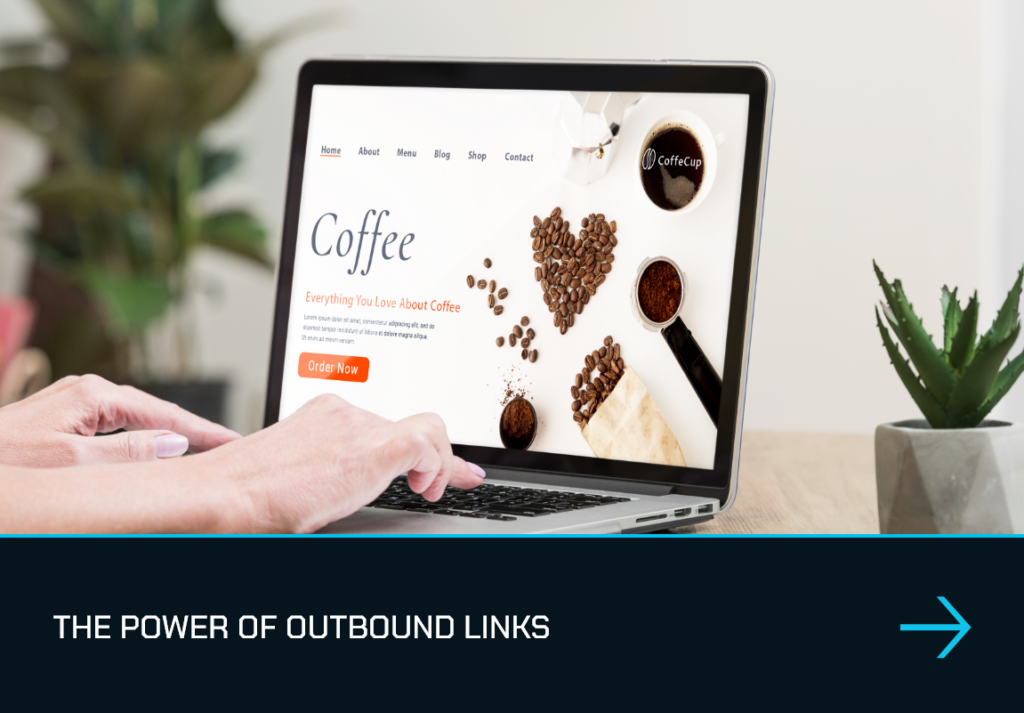Outbound links are powerful tools that can be easily controlled and used to improve the ranking of your site. This article will tell you everything you need to know about outbound links if you have yet to fully utilize all its benefits. As we want to give you all the necessary information and tools to improve your site’s ranking, this post will include a complete list of the benefits of outbound links and tips and tricks on how to fully utilize and maximize its power and effectiveness.
Outbound Links 101
Outbound links are texts or images in a website that directs visitors to other websites. It’s an exit portal from your website to another website. It is the very opposite of inbound links. Inbound links direct visitors to other pages in your website while outbound links completely transfer readers to other websites. If a website drops a text or image with a link to your site, that is considered an outbound link. Whenever you drop links on your site to other websites, that is considered as an outbound link. Outbound links are also referred to as external links.
Outbound links are more powerful that inbound links because search engines evaluate your site not just by your content alone but by how other websites interact with it. Search engines will see your site as a credible and trustworthy authority when numerous websites link to your site.
Outbound links can be categorized into two: nofollow outbound links and dofollow outbound links. Dofollow outbound links can improve a site’s search engine ranking while a nofollow outbound link cannot.
By default, all outbound links are dofollow links. Nofollow links can be created by intentionally adding a tag.
Here is how a normal dofollow outbound link looks like:
https://www.highjumpdigital.com.au/”>Digital marketing
Having a nofollow outbound link will require additional coding like this:
https://www.highjumpdigital.com.au/ rel=”nofollow”>Digital marketing
Importance of Outbound Links
The utilization of outbound affects the following factors: your site’s popularity, your site’s relevance, your site’s reputation, your site’s value, and your site’s backlinks.
- Improves the popularity of your site.
Search engines use outbound links in factoring the popularity and credibility of a website. Search engines like Google mark your website more popular when more links are directed to it.

- Makes your site relevant
Outbound links cue in search engines on the kind of content you offer. Every outbound link directed to your site builds up your relevance on a certain topic, industry, niche, or question. Anchor texts play a major role in this factor. The more personalized and topic-centric it is, the better.
- Sets the reputation of your site
Outbound links clue in search engines as to your site’s quality. If your site has links to spam and bogus sites, search engines will tag you as unreliable. Careless use of outbound links creates a bad reputation that can greatly affect the ranking of your website. If outbound links are used well, it can effectively boost your reputation as your site will be deemed as legitimate, credible, and of good quality.
- Makes your site valuable.
Outbound links can make your site valuable if you effectively link to good sites and further resources. The more authoritative and credible you are when it comes to content, the more and more people will keep coming back to your site and in turn can make a huge difference to your SEO performance.
- Improves your network of backlinks.
Outbound links will improve your backlinks. The sites that you link will link back at you and widen your network of backlinks. As your network grows and linking expand, more and more people will also link back to your site. Your number of unique visitors will increase for every newly linked website. Numerous external links from different websites will result in search engines relying on your site for valid and good quality content.
How effective are outbound links?
Outbound links or external links are deemed as the most effective way of increasing one’s rank in search engine results. This is because it’s powered by different third-parties. Search engines consider third-party links as heavily reliable metric tools that dictate the credibility and quality of a website. Research showed that websites that include links to reliable resources significantly increased in search engine rankings.
Do’s and Don’ts in Outbound Links
Outbound links are powerful tools that require responsible use. To make the most of its benefits and truly see results, do apply the following tips when giving external links:
- Use the right words.
You have to remember that users always need the best kind of information. The more precise your information is, the more authoritative and credible your site will become. You should use relevant terms when dropping links in your content. When linking to a shoe store, link it to relevant terms like “shoes” or “shoe store” and not to confusing terms such as “dresses” or “lipstick”. The more precise it is, the better. You should also remember to never overuse terms for anchor texts as you may be tagged as a spam site.
- Make the linking as natural as possible.
You should find a way to make linking as natural as possible. Drop links in sentences that have the anchor texts that are relevant to the presented information. Never force-feed links to your readers.
- Avoid flooding your site with outbound links.
You should use outbound links in a limited manner. Flooding your content with links will overwhelm your readers and confuse search engines. It can even lead to search engines tagging your site as unreliable and spammy.
The Proper Usage of Nofollow Links
Nofollow links are important to secure the stable ranking increase of your website. You should use it to keep in check the quality and credibility of your content. The use of nofollow links effectively clues in search engines that you do not promote and pass linking power towards the linked website.
- Comments from readers and third-party visitors – User comments often have links to sites that are spammy and dubious. Nofollow links secure that comments from readers that have links will not affect the reputation of your site.
- Content from third-party contributors – Nofollow links will ensure that you do not promote any links that third-party contributors will drop. This will save you from having to deal with bad links and spammy links.
- Monetized Links – paid links often have numerous clicks. This can make your site seem spammy. To avoid it, you should use nofollow links.
- Embedded Content – If you posted data from a different site but you do not want to endorse them, use nofollow links.

